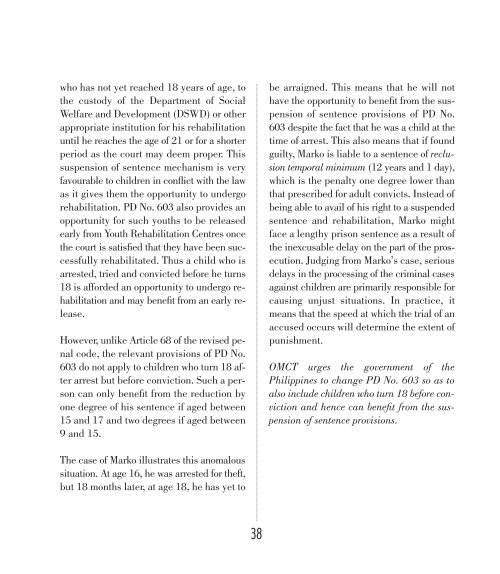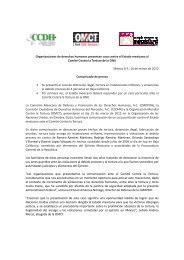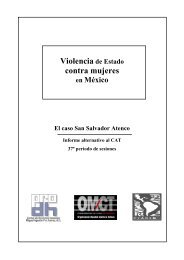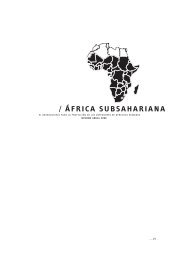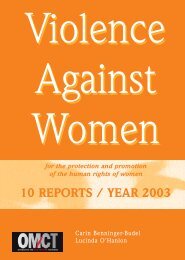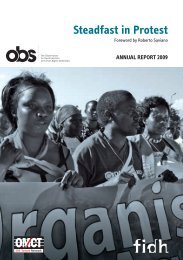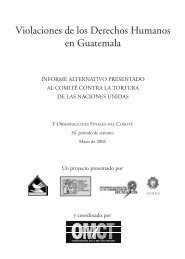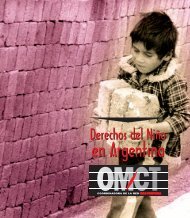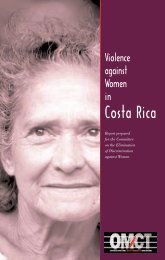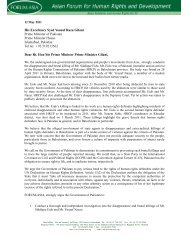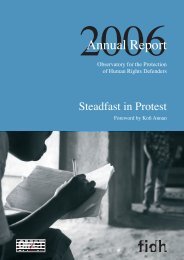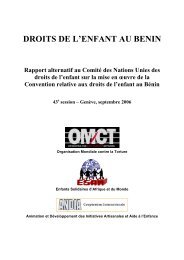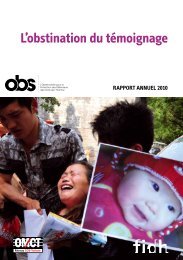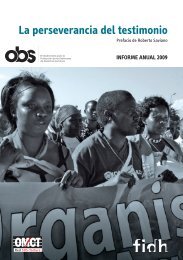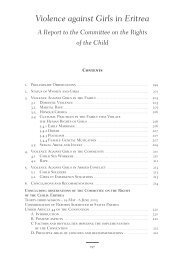eng - World Organisation Against Torture
eng - World Organisation Against Torture
eng - World Organisation Against Torture
Create successful ePaper yourself
Turn your PDF publications into a flip-book with our unique Google optimized e-Paper software.
who has not yet reached 18 years of age, tothe custody of the Department of SocialWelfare and Development (DSWD) or otherappropriate institution for his rehabilitationuntil he reaches the age of 21 or for a shorterperiod as the court may deem proper. Thissuspension of sentence mechanism is veryfavourable to children in conflict with the lawas it gives them the opportunity to undergorehabilitation. PD No. 603 also provides anopportunity for such youths to be releasedearly from Youth Rehabilitation Centres oncethe court is satisfied that they have been successfullyrehabilitated. Thus a child who isarrested, tried and convicted before he turns18 is afforded an opportunity to undergo rehabilitationand may benefit from an early release.However, unlike Article 68 of the revised penalcode, the relevant provisions of PD No.603 do not apply to children who turn 18 afterarrest but before conviction. Such a personcan only benefit from the reduction byone degree of his sentence if aged between15 and 17 and two degrees if aged between9 and 15.be arraigned. This means that he will nothave the opportunity to benefit from the suspensionof sentence provisions of PD No.603 despite the fact that he was a child at thetime of arrest. This also means that if foundguilty, Marko is liable to a sentence of reclusiontemporal minimum (12 years and 1 day),which is the penalty one degree lower thanthat prescribed for adult convicts. Instead ofbeing able to avail of his right to a suspendedsentence and rehabilitation, Marko mightface a l<strong>eng</strong>thy prison sentence as a result ofthe inexcusable delay on the part of the prosecution.Judging from Marko’s case, seriousdelays in the processing of the criminal casesagainst children are primarily responsible forcausing unjust situations. In practice, itmeans that the speed at which the trial of anaccused occurs will determine the extent ofpunishment.OMCT urges the government of thePhilippines to change PD No. 603 so as toalso include children who turn 18 before convictionand hence can benefit from the suspensionof sentence provisions.The case of Marko illustrates this anomaloussituation. At age 16, he was arrested for theft,but 18 months later, at age 18, he has yet to38


